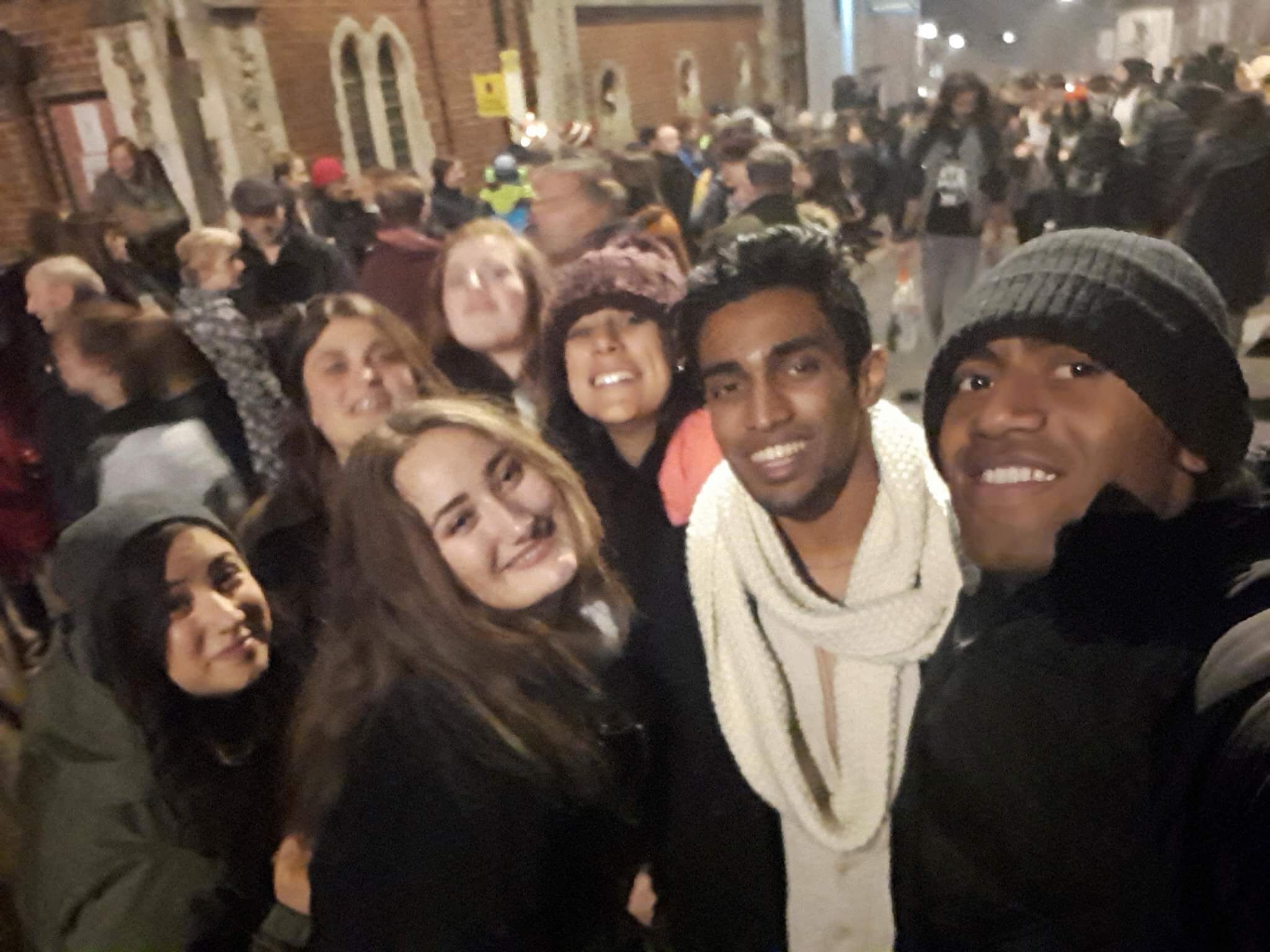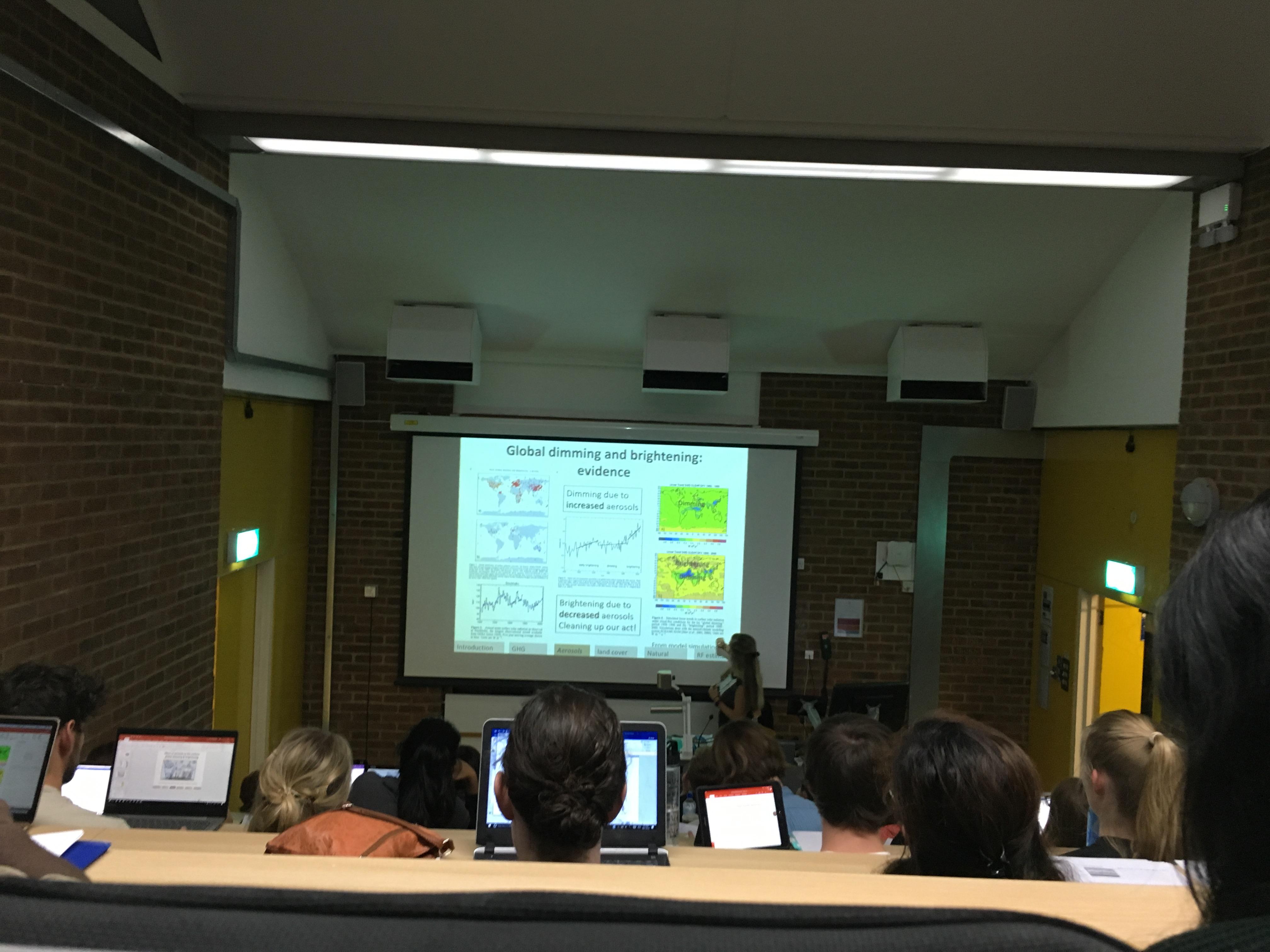
If you’re considering a Masters at Sussex, I have some tips for you
Students often stumble into Masters thinking it’s an extension of undergrad. It’s not.
I made that mistake and I'm paying for it (£10,000 to be exact).
I envisioned my Masters year to be a year of character development; the last year of education where I can go hard before going home to eventually go to work. I was excited to embark on the journey, enthusiastic about meeting new friends, going to the best development school in the world and expanding my extracurricular interests.
In a way, it was that widespread annual back-to-school affliction that students suffer from every late August to early September. Every student wants to start doing their readings on time, learn a new language, start two new sports and pick up three new musical instruments, and I was not different. I saw myself learning Spanish, going back to Jiu Jitsu, playing tennis, and hitting the gym four times a week. I was going to start a blog, dust off my old drum kit and continue with the societies I was in last year.
Most naively, before the reading lists attacked, I told myself I was going to get all my readings done at least a week in advance.

Cue the first masters related existential crisis. Was I in the right place; had I really given enough thought to this fairly last-minute idea of doing a Masters?
The only way I could get the 250-400 pages of essential readings a week done was by treating the library like a 9 – 5 job. I have separate readings for lectures and seminars! I could do maybe half of the things on my academic year resolutions list and I would still be behind in readings.

This is how I avoid 400 pages of weighty responsibility
I'm not claiming to be the best role model for aspiring postgraduates. In the month-and-a-half I've been doing a Masters, my level of sobriety has been significantly lower than the same period during first year. I'm getting on fine, though, and I just want you, aspiring postgrad, to know that undergrad is very different. If you are insane enough to choose the postgrad life, I'd advise you listen to these tips from my more-conscientious colleagues.
Tip 1: Put yourself out there in the first month
Sussex University has great staying power so you might not need to – having a set of friends staying over from undergrad definitely helped me with the transition. However, a lot of new postgraduates are in a completely different environment.
Elizabeth Gujral, who studies MA Globalisation, Business and Development, thinks it is important to make friends early on, saying that "So many people come from across the world and know no one, so there's definitely a gravity for people to form friend groups.
Especially nowadays, with a lot of deadlines approaching, more people are not inclined to go out and socialise as frequently. Anyone just starting their Masters should get out as much as possible when first term starts because after a few weeks there may not be as much time."
Masters students are extra-social at in the first month of the year and hence a bit relaxed with readings because it's like freshers all over again – you meet tonnes of people, out of which you carve out a close group of friends who you will laugh and cry with for the next year.
Alex Bacon from MSc Climate Change, Development and Policy, actually feels that there is "loads more of a sense of community in Masters courses. Everyone goes out together and knows a lot more about each other." So make sure you treat the first month like a toned-down version of freshers. It'll be fun.

All you need is love
Tip 2: Things will be a lot more mature than usual
I don't consider myself an adult. My parents do and so do the courts; I think they're wrong. But nothing makes you feel more adult than having a significant number of your course-mates be above the age of twenty-four, with probably a lot more experience out in the field than you can ever dream of.
I've even seen families with children at a party at the IDS bar (for those who don't know, this is the hidden third bar at Sussex campus that is a lair for development geeks).
Dorottya Tamas, who studies MA Literature and Philosophy, likes having course-mates who are significantly older. "They have different ideas and perspectives. I like to be open-minded; if you're surrounded by people the same age as you and more or less the same background, you're going to reach the same conclusions most of the time."
You'd expect being surrounded by adults would mean you'd have to behave "maturely" (whatever that means) but, to my surprise, I found out even twenty-six-year olds are still partial to a freshers style piss-up.

Serious adults
Tip 3: At the same time, adults are serious about their studies. And this makes your seminars and lectures better
Sasha Kayser, from MSc Climate Change, Development and Policy, thinks diligent, adult classmates are a positive influence, saying that "Having people on the course older than you makes for better seminars as they tend to be more keen to contribute than your average hungover undergrad. They also have more experience from working on the field and in international contexts, so there's lots to learn from."
You will have those dreaded group presentations, projects and whatnot. And you have to keep in mind a lot of your course-mates are professionals taking a year out of their career to seriously study. So when it comes to group projects, more likely than not, they will expect you to be on top form because you both rely on each other for a good grade. Don't let them down.

A mature, adult way to socialise.
Tip 4: You have a lot of academic freedom, take advantage of it.
I've genuinely heard people say they might ask for "research funding" for their "theses" to do "fieldwork". Masters is a lot more independent than undergrad; you are given a lot more readings per contact hour, but whether you do them is up to you.
You are independently in charge of your research, so you can do mostly any reading that is relevant to your topic. Alex describes having a "massive meltdown. I overworked myself the first two weeks. I've come out the other side of it now, but I felt there was a pressure to work really hard beyond my capabilities, especially with the course only being a year. But I realised I was putting way more work in than was required at that stage."
Many of those who are returning to studies from their career may already have a specific idea about what problems they would like to solve in their field. But, as Raquel Bonelli from MSc Climate Change, Development and Policy says "The younger students have more academic skills because they've just gotten out of university." Your older colleagues haven't written essays for years, so you have the leg-up there.
Tip 5: You will make friends in the weirdest of places
Remember how I said you will probably be considered an adult? Your professors are adult, too. Adults interact, chill and may even become friends. I've seen students who are already best friends with their professors. Some professors are such gossips. And it would definitely help to have a "friend" (intense quotation marks) who helps you with essays.
Tip 6: A masters is a big step up, don't waltz into it because you don't know what else to do
Chloe Quinn, who is studying a Law LLM, advises "My top tip would be to really think about the course you want to do. Don't just take a Masters because you don't know what else to do; it's a lot of work and courses are very specialised so you need to make sure you're going to enjoy it. Definitely do your research before jumping into something."
A postgraduate degree will be an intense journey; I have yet to get past my first major assessment period, so I can feel the meltdowns coming after an inebriated first term. But I know if I devote double the amount of mental energy I did to organising my life in third year, I might get by with only a couple scratches and a shiny new degree.
The point is, you are surrounded by like-minded people in a different environment with different expectations… Make the most of it.









































